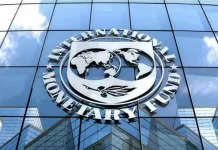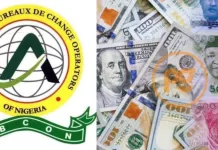President Tinubu’s recent decision to remove subsidy has sparked significant debates and discussions regarding its potential impact on the prices of commodities.
Market observers eagerly anticipate the forthcoming inflation data due for release on June 15.
Considering various factors and dynamics at play, Kayode Shopekan sheds light on the potential repercussions of the subsidy removal on commodity prices in June.
Effect Of Subsidy Removal
The removal of subsidies, while intended to streamline the economy and reduce fiscal burdens, can lead to short-term price shocks.
Read Also: Fuel Subsidy: NLC, TUC Suspend Nationwide Strike
It is essential to note that the exact magnitude and direction of these price changes is likely influenced by a multitude of factors.
Such factors include global market trends, supply and demand dynamics, currency fluctuations, and the competitiveness of domestic industries triggering inflationary pressure.
Cost Of Fuel and Energy
Fuel prices will likely experience upward surge to over 500 Naira in some cities in Nigeria.
This is because of government’s subsidy removal agenda.
According to the NNPC, this increase should subsequently cascade down the supply chain, affecting transportation costs and ultimately influencing the prices of various commodities.
Food And Agricultural Commodities
Another area that is expected to experience price adjustments is the food and agricultural sector.
As transportation costs rise due to higher fuel prices, the cost of transporting agricultural products from farms to markets could increase.
This could lead to upward pressure on prices, especially for perishable goods with shorter shelf lives.
Domestic Production And Competition
On the other hand, subsidy removal may also incentivise domestic production and competition.
As government subsidy is eliminated, local industries could be compelled to improve efficiency and productivity to remain competitive.
In the long run, this could lead to increased supply and potentially stabilise commodity prices
While the removal of subsidies can exert upward pressure on commodity prices, it is crucial to consider potential mitigating factors that may temper the overall impact.
Market Competition
Increased competition among suppliers and producers might mitigate price hikes.
As various businesses strive to attract consumers, some may opt to absorb a portion of the increased costs rather than passing them on entirely to customers.
However, it is worthy to note that the interplay between supply and demand is a crucial determinant of commodity prices.
If demand remains stable or experiences a decline, it could offset some of the inflationary pressures resulting from subsidy removal.
Conversely, an unexpected surge in demand could intensify price increases.
Government Intervention
Governments often employ measures to counterbalance the short-term shocks caused by subsidy removal
But in this case, it is yet to be seen what the government of president Tinubu will do to address the imminent impact on the economy.
Expert say such measures could include targeted interventions, price controls, or implementing policies to support specific sectors affected by price fluctuations.
In summary, the decision to remove subsidies is a complex undertaking with far-reaching implications.
While the exact impact on commodity prices in June remains uncertain, an economist have suggested that inflation rate could rise by a minimum of 6%.
That will mean that the cost of your commodity how will experience a 6% increase.
What this means is that a good sold for 500 Naira could rise to 530 Naira before the end of June.
However, because Nigeria does not have price control and low denomination of Naira, that 6% increase, could mean a minimum of 50 Naira added to the cost of your 500 Naira product.
You May Also Like: How To Cope With Rise In Prices Of Goods, Services
Also, it is crucial to consider various factors such as fuel and energy costs, agricultural commodities, domestic production, and competition.
According to expert, the government will have to mitigate the impact by ensuring a healthy market competition, government interventions, and supply and demand dynamics should be taken into account when assessing the overall effect on prices.
As the inflation data for June is released on June 15, it will provide a clearer understanding of the immediate consequences of subsidy removal and its influence on the economy as a whole.






